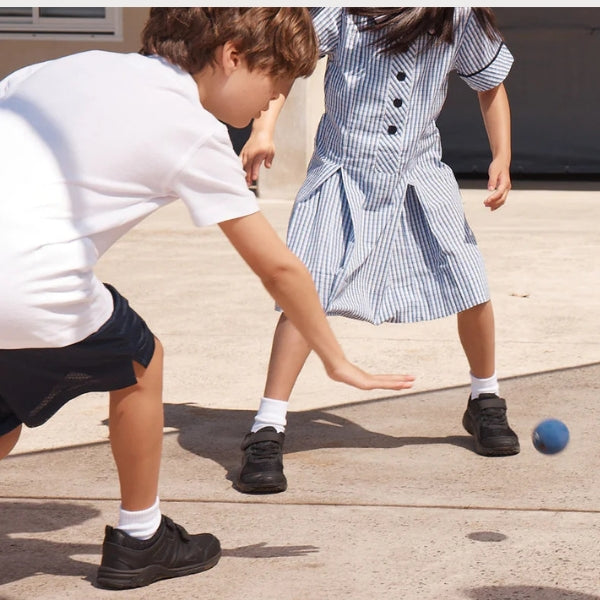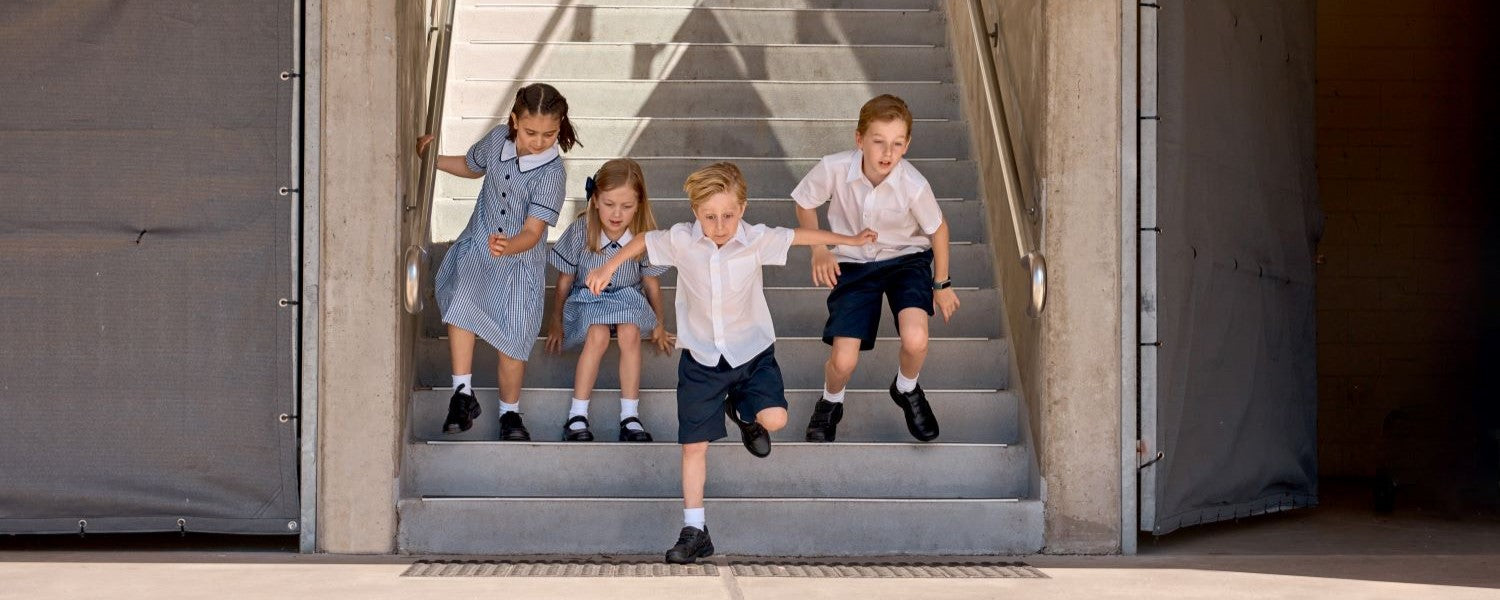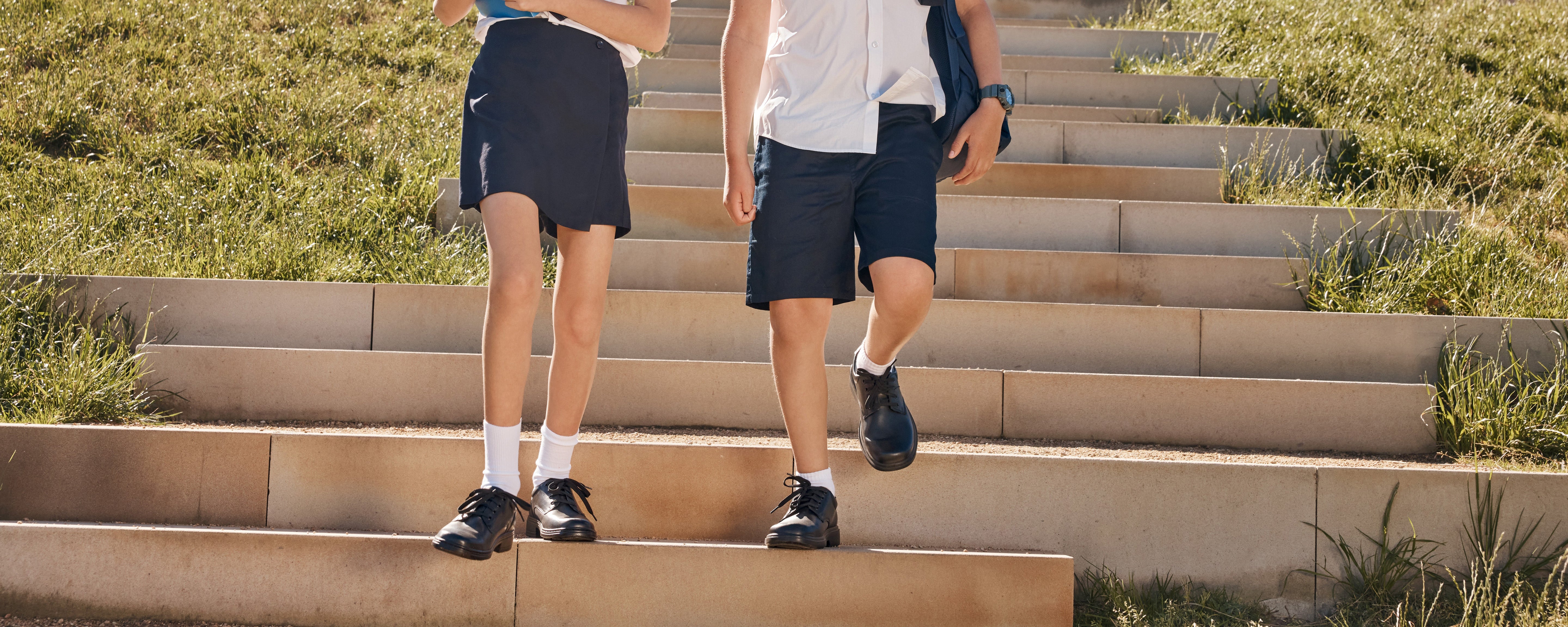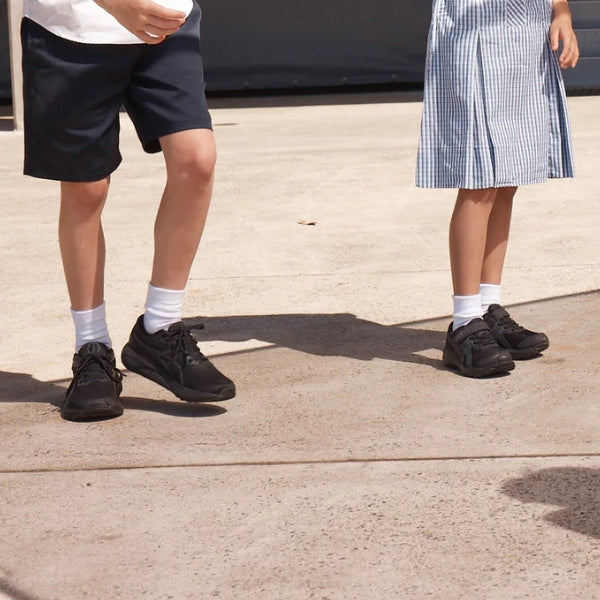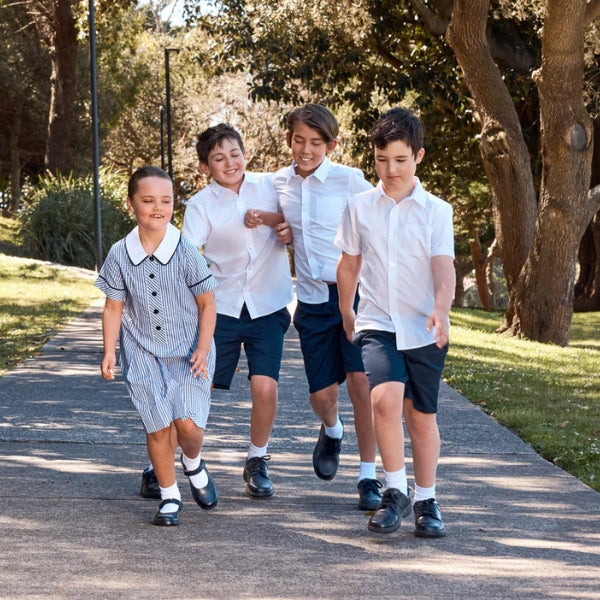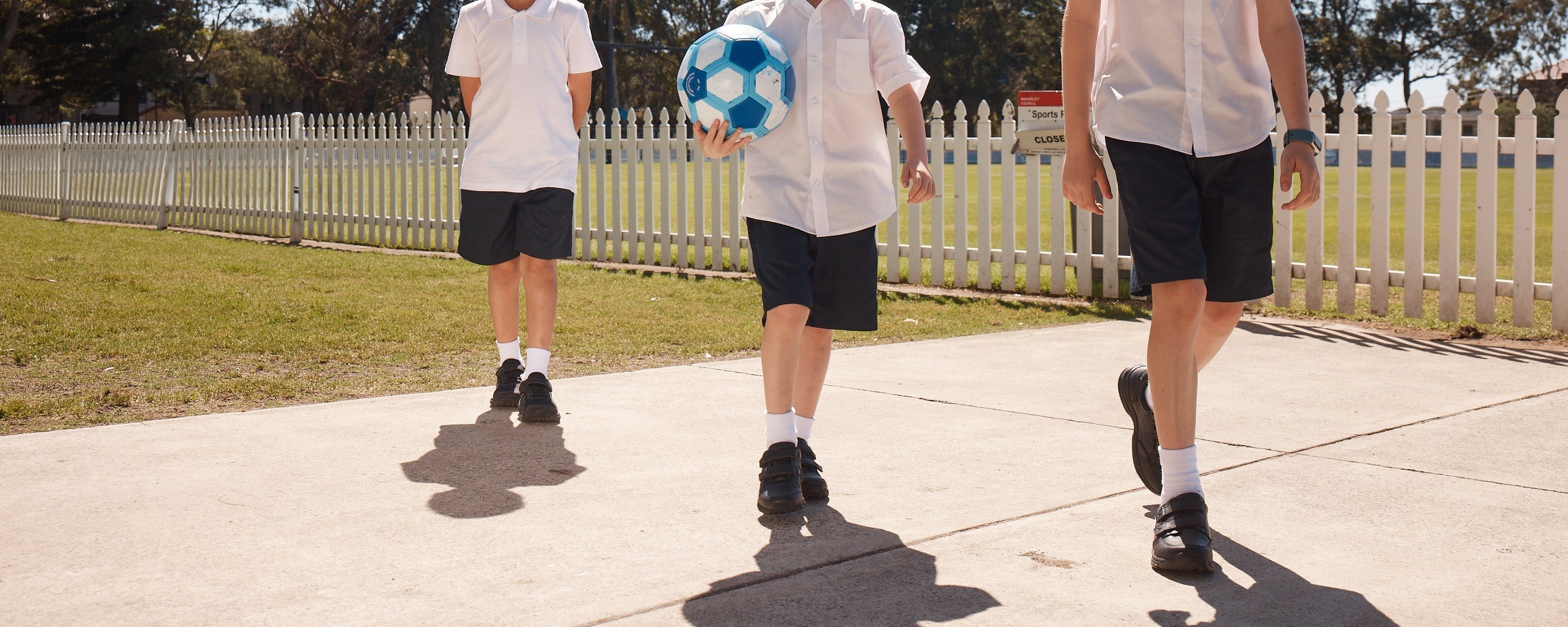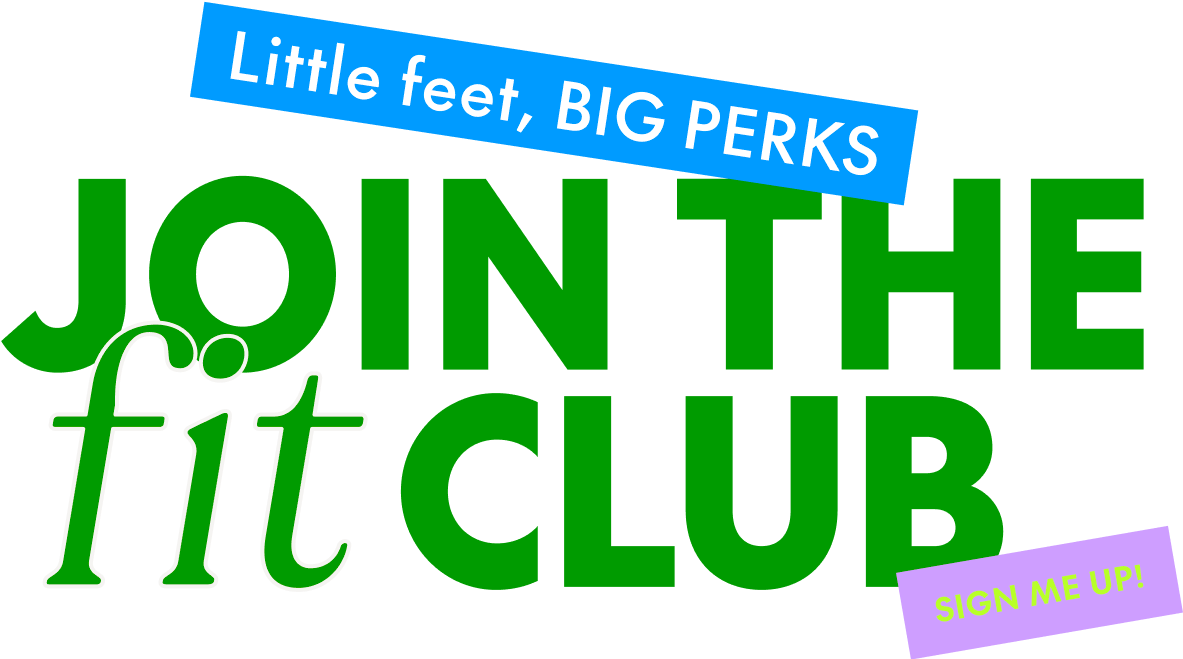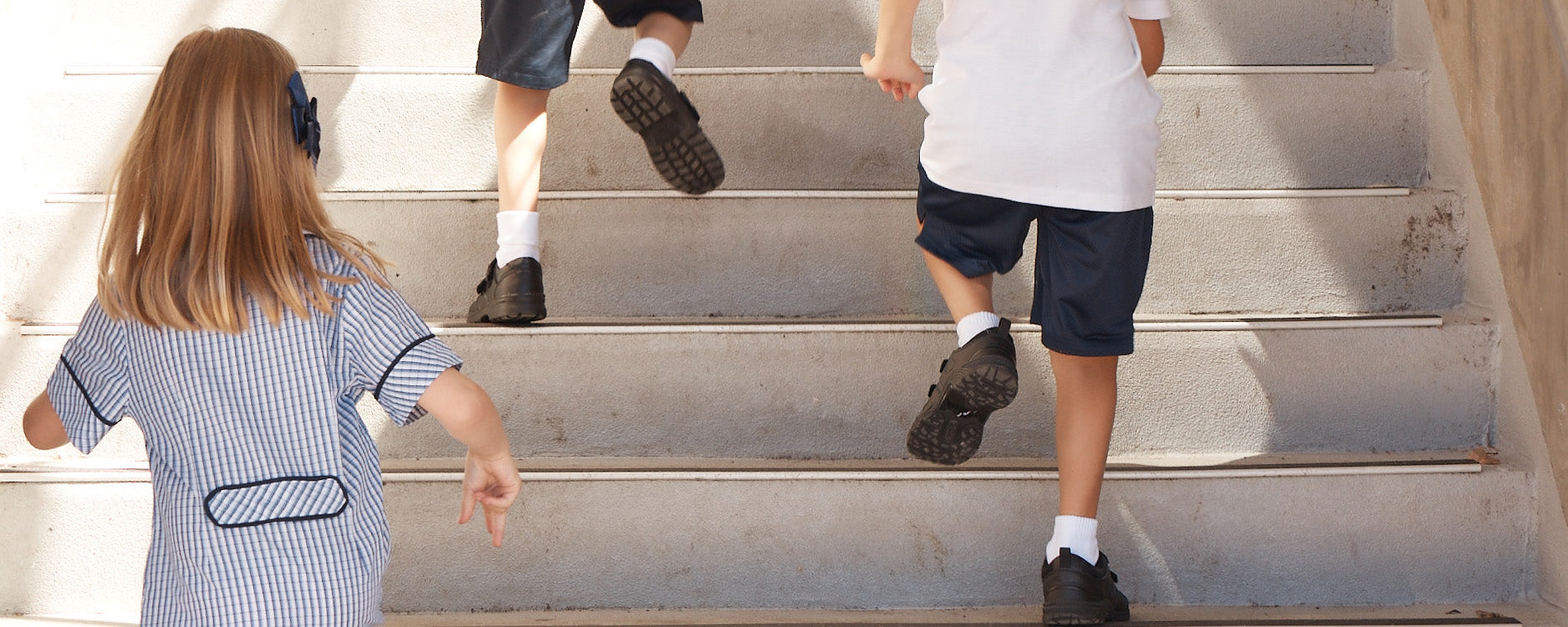
From the Playground to Adulthood
There’s no denying it can be tempting to want to buy your child’s school shoes a few sizes bigger, especially when they can grow out of them quickly. The same can be said for hand-me-downs or marketplace finds but you will soon learn that this is best avoided, especially when it comes to your child’s school shoes.
We sat down with Emily Smith, one of Australia’s leading sports podiatrists as she explains the importance of having your child’s shoes correctly fit and the longer-term implications of ill-fitting shoes.

From the playground to adulthood: the long-term implications of ill-fitting shoes
School shoes are often seen as just part of the school uniform, when in fact, they play a crucial role in promoting overall foot health and well-being. From the playground to adulthood, the shoes your child wears can significantly impact their foot development which can have immediate and long-term implications.
The Playground Origin of Adult Foot Problems
Children are naturally active, as they spend a significant amount of time running, playing, and exploring. With feet enduring up to four times their body weight during active play, their developing feet are highly susceptible to the consequences of ill-fitting or substandard footwear. Be it school, sport, or everyday shoes, the footwear they sport during these formative years can shape the health of their feet for a lifetime.
15,000 Hours
Consider the sheer number of hours your child spends in shoes. Whether at school, playing on the playground, participating in sports, or just wearing shoes casually, it all adds up. It's estimated that children spend over 15,000 hours each year in school shoes alone, a significant amount of time for potential foot problems to develop if they're wearing shoes that don't fit and support correctly.
Start Off On The Right Foot
Approximately 65% of children have been found to be wearing the incorrect shoe size which means two-thirds of our kids spend their days in potentially harmful, ill-fitting shoes. A visit to a specialist shoe store like Shoes & Sox ensures your child starts with the right-sized shoe, providing the perfect amount of room for growth. Additionally, Shoes & Sox offers established brands known for their engineering, support, and durability.
Small Investment, Big Returns
The investment in well-fitting, well-engineered shoes from the outset is a small yet significant down payment on a child's physical, social, and emotional health. A comfortable child equals a happy, confident, and physically active child. Quality shoes provide the necessary support, protection, durability, and comfort that growing feet require to help prevent future foot problems. Moreover, if your child begins to experience foot or leg pain, one of the first considerations of a Podiatrist or practitioner will be the fit and function of their shoes.

Consequences of Ill-Fitting Shoes
A child's feet are malleable, which means that ill-fitting shoes can have various consequences:
Blisters and Calluses: Poorly fitting shoes can cause friction and pressure, leading to painful blisters and calluses.
Ingrown Toenails: Shoes with narrow or tapered toe boxes can cause nails to grow into the skin, resulting in painful infections that may require podiatric treatment.
Foot Deformities: Ill-fitting shoes can contribute to foot deformities like bunions, curly toes, or hammertoes, causing pain and dysfunction into adulthood.
Foot Pain: Shoes that don’t fit can lead to tension, shortening, compensation, and additional load on soft tissues, potentially causing pain, fatigue, and injury.
Trips and Falls: Poorly fitting shoes can lead to instability, increasing the risk of accidents and injuries. This not only affects your child's sporting and social activities but can also result in abrasions and broken bones.
In conclusion, it's crucial to recognise the significant impact that shoes, including leather school shoes, have on your child's health. From preventing foot problems and deformities to promoting injury-free play, the right shoes make all the difference. So, consider school shoes as an investment in your child's well-being and remember that when it comes to their health, it starts from the ground up.
Written by Emily Smith, Sports Podiatrist & Founder of Emily Braidwood


















